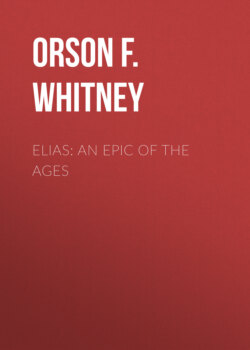Читать книгу Elias: An Epic of the Ages - Orson F. Whitney - Страница 8
На сайте Литреса книга снята с продажи.
ARGUMENT
ОглавлениеTable of Contents
The aim of this poem is to point out those manifestations of the Divine Mind and those impulsions from human enterprise which have contributed in all ages to the progress of the race toward perfection.
Thus it deals not only with man's origin and destiny, with earth's creation, redemption, and ultimate glorification, but with events and epochs leading up to and having those greater ends as their decreed consummation. The Christ theme, in its heavenly and earthly phases, is supplemented by the sacred and secular history of man upon both hemispheres. God's direct dealings through prophets, apostles, and other inspired agents, and His indirect dealings through poets, painters, philosophers, inventors, discoverers, statesmen, kings, conquerors and the like, are indicated, and the experiences of the Church of Christ in various dispensations portrayed.
The title "Elias," signifying restoration and preparation,—the lesser going before the greater with those objects in view,—is used to denote and personify the Genius of Progress, whose beneficent workings, under the guidance of the Infinite Spirit, through the aeons and the ages, behind the scenes and upon the stage of human action, are the warp and woof of the entire poem. The medial point is the Dispensation of the Fulness of Times, the era of restitution, when the House of God is to be set in order, and all things in Christ are to be gathered into one.
Notes
